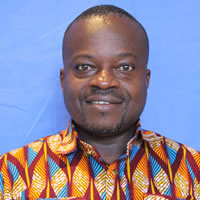Educational Facilities
The Tano North Municipal is divided into four schools circuits namely, Bomaa, Yamfo, Terchire and Duayaw Nkwanta. Basic education is widespread in the Municipal. The Municipal has a total of 82 public and private schools. The public has 65 KG, 67 Primary and 56 JHS. The private also has 19 KG, 19 Primary and 10 JHS. Generally, enrolments in the school have seen an increase over the years due to introduction of capitation grants, school feeding and increase in population.
The trend has come with its own challenges of demand of more teachers, classrooms, furniture among others. The Municipal has 5 Senior High Schools and 1 vocational school namely: Serwaa Kesse Girls SHS, Boakye Tromo SHS, Bomaa Community Day SHS, Yamfo Anglican SHS, Terchire Community Day SHS (Private) and Yamfo Vocational Training Institute. Physical access to these schools is considered very high because almost all the big towns have an educational facility making it easier for the people to access without travelling long distances.
The education sector has undergone various reforms with its several objectives mainly aimed at closing the gender gap in access to education as well as improving the quality of education. The Municipal is endowed with 82 public and private schools. The public has 64 KG, 67 primary and 54 JHS. The private also has 17KG, 15 Primary and 12 JHS. The enrolment level of each is shown in table below
Teacher Quality
The average percentage of trained teachers in the Municipal for public schools stands at 68% with the breakdown of 46% in the KG level, 67% in primary and 84% for JHS level. This shows marked improvement in the rate at which teachers are upgrading themselves to become qualified trained teachers in the public. The reverse is true for that of the private schools with just a percentage of 4% being trained teachers. The table below shows teachers qualification of both public and private schools.
Basic Education Certificate Examination
The performance for BECE has declined over the period, from 91.6% in 2014 to 67.8%. Measures need to be put in place to raise the performance above previous years. The table shows the pass rate over the period.
Teacher Housing
There are ten (10) teachers quarters and ten (10) Head Teachers Quarters. The current number of the teachers housing units is woefully inadequate looking at the number of teachers in the Municipal. The poor and inadequate teacher accommodation, especially in deprived communities has been identified as one of the major challenges for the refusal of most teachers to accept postings or stay in some communities. This challenge has resulted in a number of teachers commuting daily from the relatively endowed urban centers especially Sunyani and Duayaw- Nkwanta to their schools in the deprived areas. This results in lateness, absenteeism (on the part of both teachers and pupils) and loss of pupil-teacher contact hours.
Senior High Schools
The Municipal has four Senior High School namely; Serwaa Kesse Girls SHS, Boakye Tromo SHS, Bomaa Community Day SHS, Yamfo Anglican SHS and Terchire Community Day SHS (Private).
Challenges
Boakye Tromo SHS
• Inadequate dormitory rooms
Bomaa Community Day SHS
• Inadequate dormitory rooms
• Inadequate classrooms
Yamfo Anglican SHS
• Lack of core textbooks
• Inadequate dormitory rooms
• Lack of toilet facilities
The Municipal has an ICT centre at Afrispakrom and Tanoso built by Nadef. Six (6) other schools in the Municipal also have computer labs.
Challenges of the Directorate
a. Non disbursement of GOG Service funds for administrative running (for over three years, the office had not received anything to run the administration-payment of utility bills.
b. Vehicle for monitoring and supervision of schools is lacking
c. Accommodation for the Municipal Director. He is in a rented house and he is facing rejection because rent payment is in arrears for six months
d. Inadequate computers for office use. Example, none of the four unit heads has even one desktop computer on his table
e. Inadequate office furniture. Even now, some of the officers use tables and chairs which they bought themselves
f. Dilapidated classroom blocks of some schools
g. Serious inadequate furniture especially, at the KG level
h. Some of the parents have no interest in their wards’ education
i. Late receipt of logistics such as chalk, notebooks for lesson plans etc
j. Stealing of schools’ laptops for learning of ICT
School feeding
The Free Compulsory Universal Basic Education (FCUBE) took effect from the 2005-2006 academic year, which gave all children free access to basic education. In addition, a pilot School Feeding Programme was also initiated in 2005-2006 to give one meal per child in basic schools. All these policies were aimed at encouraging parents to send their wards to school. Table 1.40 shows the number of communities which have benefitted from the programme since its inception.
In all, a total of 15 schools were enrolled in the programme by the close of 2016. However, Yamfo Methodist A and B has been divided into two since it had the highest number of children bring the total number of schools to 16. Apart from few challenges confronted by the programme especially the untimely release of the feeding grants to the cooks, the programme has been successful.
Date Created : 11/23/2018 2:27:11 AM






 facebook
facebook twitter
twitter Youtube
Youtube TOLL FREE 0800 430 430
TOLL FREE 0800 430 430 +233 593 831 280
+233 593 831 280 GPS: GE-231-4383
GPS: GE-231-4383 info@ghanadistricts.com
info@ghanadistricts.com Box GP1044, Accra, Ghana
Box GP1044, Accra, Ghana